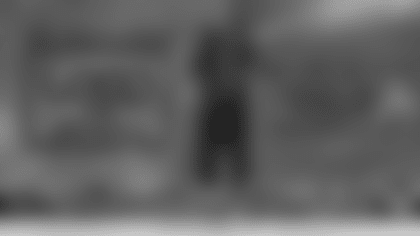Bill Polian, in his 13th season as Colts president, has a
resume unique in the NFL. The only man to win NFL Executive of the
Year six times, Polian in the 1980s built the Buffalo Bills into a
four-time Super Bowl participant. In the mid-1990s, he built the
expansion Carolina Panthers into a team that made the NFC
Championship Game in its second season, 1996. Since joining
Indianapolis in 1998, he built the Colts from a 3-13 team in 1997
and 1998 into one that has made the playoffs 10 of the last 11
seasons, including AFC Championship Game appearances after the
2003, 2006 and 2009 seasons, AFC South titles in 2003, 2004, 2005,
2006, 2007 and 2009, Super Bowl appearances following the 2006 and
2009 seasons and a Super Bowl championship following the 2006
season. Each week during the season, in The Polian Corner, Polian
and Colts.com will discuss issues pertinent to the Colts and the
rest of the NFL.
Q: The Colts were off this week for their 2010 bye week. Did you watch a lot of football games over the weekend?
A: I got to see all of them, or all that I cared about, anyway. It was very interesting. It was a great opportunity to sit back and study other teams in real time and watch things like officiating and play-calling and game management. It was really cool, actually. I don't mean to get on the bandwagon of, 'It's better at home than it is in the stadium,' because I can give you 30 reasons why it's better in the stadium. I had some questions myself where I would have liked to have been in the stadium. But from a technical football standpoint, it was very, very instructive.
Q: Is that the only weekend of the year you get to enjoy the NFL?
A: Yes. Absolutely, because once you're out of the playoffs, you're in a bad mood and don't want to watch anybody. I just want to get it out of my system, so this time – the bye week – or if you happen to be in a long week following a Thursday Night game is the only time you get to really sit back and take an incisive look in the sense of everything that goes on with a chance to say, 'OK, this is something we haven't thought of,' or, 'Wow, look at this team doing that,' or, 'Look who's playing that position over there.' Those things are all a busman's holiday, if you will, but it's a lot of fun and very interesting and very educational.
Q: Any AFC teams jump out at you?
A: I thought Pittsburgh played well, and I thought Miami played well. Those are two really gigantic defenses playing very well, and that game came down to an official's call – and apparently the right one. The San Diego-New England game was really a barn-burner and one that was about as wild and woolly as I've seen. For a team to turn the ball over four times to a team like New England and still have the opportunity to tie the game with a 50-yard field goal is absolutely amazing. It was a wild and woolly game, that's for sure.
Q: And New England, as it did last season, went for 4th-and-2 late in the game with a chance to secure victory . . .
A: We've seen it before. Clearly they believe in what they're doing. If you look at their statistics, I think they're pretty overwhelming in the sense that they make the right decision most of the time.
Q: The players have Tuesday and Wednesday of this week off. Is that discombobulating at all?
A: No problem at all. In many ways, it's good. It gives the injured guys a chance to heal one more day. Because it's a night game, actually, a day and a half to heal. That's all to the good. We're used to playing Thursdays, Mondays, Saturdays, Sundays. It doesn't matter. We play all over the lot, anyway. So, that's fine.
Q: And a day and a half can make a significant difference this time of year, can't it?
A: Absolutely, it does. If you have a player, for example, who is nursing a hamstring or something of that nature and needs an extra day's rest, the fact that it's an 8:30 kickoff basically affords them a full extra day's rest. That's the difference between not being able to play on Sunday and being able to play on Monday. It's night and day. These injuries, sometimes, come down to 24 or 18 hours in terms of a guy being ready to go.
Q: Worst year you've experienced for injuries?
A: It sure seems like it. I haven't looked at it statistically yet, although I do have that breakdown on my desk. It certainly seems like it's the worst year, and it seems like it's happening much earlier – I know statistically it's happening much earlier than it has happened in the past. We have had injuries since Week 1, really, of training camp. Normally, we're used to seeing them in the third quarter of the season. They have been happening for quite some time now. That, statistically, is a departure.
Q: Just no way to avoid putting tight end Dallas Clark on injured reserve?
A: It was just something we couldn't avoid. The docs were unanimous in their opinion. The doctor who is going to operate on him is the expert in the field, and it's not a very large field. It's not a very common injury, to say the least. His healing procedure is 12 weeks. That would mean, in large measure, having the arm and the wrist casted. He's going to be 12 weeks before that cast comes off, then you have all of the conditioning issues that surround that and confidence issues for a guy using his hand to block and catch. It made no sense at all (to keep him active).
Q: Can you address who will handle the punting and kickoff duties Monday? And is it true that this is the most injuries you can recall in your time as president?
A: Right off the top of my head that is correct. I don't have any statistical evidence to back that up in front of me. I don't trust my memory anymore, so let me add that caveat. It seems like it is, anyway. As for punter and kicker, kicking off we'll probably have Adam do it. We'll add a punter basically for a week, then we'll welcome Pat (McAfee) back with open arms.
Q: Are there any serious injuries defensively this week?
A: We don't have anybody who's ruled out. We'll see what happens as the week goes on. With the kind of year it has been, we could probably have somebody get hurt in Saturday's practice. It seems like that every week. But right now, it looks as though everybody we think will play will do so. There will be some guys who might go down to the end of the week, but we haven't seen anybody that shocks us.
Q: Can you address the return situation?
A: Here's the problem. You only have 45 spots on the roster. To give up one of those 45 spots when your team is pretty depleted as it is at virtually every position – basically, we have only one healthy running back – it's very difficult to give that spot to a return guy. I grant you 1,000 percent that field position is a big plus. We saw that when we had a good return guy in the kickoff game. The punting game really only has an effect if the punter misses, if he kicks a poor punt. The kickoff returns are big time and, yes, we've been struggling there. There's no two ways about that, but I just don't see for the short term that we can add a specialist there. I can assure you when that spot opens up we'll do our best to fill it with someone that can go the distance. We just don't have that luxury right now.
Q: Can you discuss what the recent news regarding the contract of Colts quarterback Peyton Manning means, and is there cause for panic?
A: I'm going to give a lengthy answer. I hope it's coherent. On the one hand, we live in a world where the media is pervasive and covers virtually every single part of our game every single day. That is perfectly fine. In fact, it's a good thing. It's what makes the game popular. The media, and others – like agents – who interact with the media on a regular basis have their agendas. That's all to the good as well. People in the media have to draw ratings. They have to draw page views. They have to sell advertising, so they have to have stories. That's perfectly fine. I've said many times, we live in parallel universes. What is a story for the media and/or a story for an agent is not a story, worry or concern for us. I understand that it's great to put headlines out there and it's great to generate a story, and it's great to create worry, if you will – that's all well and good and what's supposed to be done. If I were working at a newspaper or a television network, that's what I'd do. If I were an agent, that's what I'd do. But I'm neither. The fact of the matter is that it is not an issue for us internally. It never was. It won't be. We've never had difficulty doing a contract. We either have or have not done them. In Peyton's case, we've had two of them we've gotten done – his rookie contract and then this one. We've always gotten everything done in a timely manner, so I suspect that that will be the case going forward. That is the only statement, however, that I'm going to make on the subject. It's someone else's story. That's a lengthy way of explaining where I'm coming from, but think I owe it to everyone to give that explanation. It's not done with any rancor or any feeling of anything being wrong. We live in two different worlds. I understand the world that the media and agents live in, but in our world that's not something we're going to worry about or address. When it's done, it will be done and we'll make an announcement, just as we do with every other contract.
Q: Is there any thought about getting Pat Angerer on the field at outside backer to get he and Clint Session on the field at the same time? Wouldn't that compensate for the weakness at defensive tackle? And with Antonio Johnson hurt, will Ricardo Mathews get more playing time?
A: The answer to the second question is yes. In answer to the first question, is I guess I would say, 'Right church, wrong pew.' There's no question that Pat and Clint are very explosive, aggressive, instinctive players. You would like to get them on the field together if you could, in some form or fashion. The question is, 'How do you do that?' We don't measure it based on statistics, especially tackles, because that's a statistic that's not very reliable. But in terms of the way they play, their quickness to the ball, their ability to punch people when they tackle, their instincts – very similar. How do you do that? The staff's sitting down and thinking about that right now. As to the purported weakness at defensive tackle, it is not based on ability as much as it is on function. We are not functioning at the correct fundamental level at that position, which is why it can be corrected and it will get better. Of course, having Mookie Johnson back would certainly help and Rico will have some difficulty when he's first in there, because that's the toughest position for a rookie to learn how to play in the National Football League other than quarterback. For example, (second-year defensive tackle) Fili (Moala) is having a heck of a year. Well, it's his second year. He should. A year ago people were complaining about Fili. We said, 'Give him time. Everything will be OK.' Rico's going to struggle, too. The bad news is we haven't been having the kind of play at defensive tackle that we did last year. The good news is we can correct that fundamentally. That's one of the things that John Teerlinck, our great defensive line coach, was trying to get done during the bye week. We can get better at that.
Q: As a club president and general manager, how do you determine what percentage of your labor/salary cap will be allocated where?
A: I'm not sure I want to answer in detail, because some of that is a trade secret. I'll give it in generalities without dealing with individual players. Basically, our philosophy has been that when we have a blue chip player who we believe has a significant amount of time remaining on his career, we will sign that player for the long term, and we'll sign him generally at a market rate regardless of the other roster consequences and almost regardless of position. Ironically enough, if you look at who we've signed over time, it's sort of 50-50 offense-defense: Antoine Bethea, Bob Sanders, Dwight Freeney, Robert Mathis, Peyton Manning, Reggie Wayne, Jeff Saturday. It has a way of working itself out. That's number one. The second thing we do is take players who are at the next level and say, 'Do we want to sign those players at what the market rate is, or can we replace those players with a younger player?' Free agency never comes into that picture. It's, 'Does the market fit our need?' and 'Can we replace the player?' I'd be the first to tell you that we've made mistakes – one of which was forced on us. That was (linebacker) David Thornton. We were in a salary cap dispute as to what the value of Marvin (Harrison's) and Peyton (Manning's) contracts were with the Management Council. It didn't get settled until David had left in free agency, and we didn't have the money to pay him under the cap. That was the only cap issue we've ever had, by the way. In other sets of circumstances, you'd have a tough decision to make on a guy you really love – Mike Peterson being an example – but you say, 'Well, the budget can't handle that based on what the market is.' That's the general overview. (Colts Owner and Chief Executive Officer) Jim Irsay, Coach (Jim) Caldwell, myself, (Vice President and General Manager) Chris (Polian), (Director of Player Personnel) Tom Telesco, Dom Anile before this period of time were all completely clued in on it. (Former Head Coach) Tony (Dungy) bought into it and believed in it from Day One. That theory of cap management is how we've run the team. There are other people who do it differently. For example, we let essentially all of our players go to the end of their contracts. Why? Because we believe longevity and some degree and proof of durability is necessary. There are other teams that say, 'Hey, we're going to sign six guys early at below-market rates, and if two turn out to be players we're ahead of the game.' We've never done it that way. While I don't for one minute criticize doing it that way – internally we've had a lot of discussions about that – it's just sort of been the way it worked out because we had so many good players. I mentioned a mistake earlier – a flat mistake on our part was Jake Scott. We did not meet the agent's number before Jake went to free agency. He didn't have the number at the end of free agency that the agent wanted from us. But as I've always predicted – and predicted along with Jim Irsay when free agency began – if you don't give the agent his number up front, he's not coming back to you, period. End of story. Jake went to Tennessee for actually less than we offered at the time. But that's an agent issue, and there's no question that that's the way it works. I'm not decrying that. That's just the nature of the business. But in retrospect, should we have kept Jake? Yes. Not every decision is the right one.
Q: How important is the game Monday against Houston?
A: I'll echo Marv Levy when he was asked in a similar circumstance when we were in Buffalo if a mid-season game against a divisional rival were a must-win. He said, 'The only must-win was World War II.' I look at it from that perspective. On the other hand, it's a big game because it's a division game and it's a team to whom we already have lost. I will say this: This thing is going 17 weeks, which is what the length of the NFL season is. The playoffs probably will not be decided until the 16th or 17th week. There are going to be a lot of people in that battle in the AFC. You can already see if San Diego were to get hot and they certainly have the capability of doing so, they'll be right back in the race in the West. There are four teams theoretically in the hunt in the South, in our division. If Cincinnati gets hot, they are certainly capable of getting back in the race in the North division and there are two other teams there that many people consider to be the two best in football. In the East, it conceivably looks like a three-horse race there. That's a lot of teams for six spots. This thing is going a long, long way. I don't think, given history and injuries that occur in this game, that home-field means a lot in the long run. I think everybody in this conference is saying, 'Let's get in the playoffs, and let's take our chances.
Q: It seems like when the Colts push the pace offensively as they did against Washington they fare better than when they let the play clock dwindle near zero. Do you see it that way?
A: First of all, it's very difficult to play at that tempo. It's difficult on the offensive line, particularly. It's difficult on the receivers, because they're running longer routes and they have to get back, so when you have a shortage of people and you can't juggle people in and out – as happened early in the season – you have some difficulty going at that pace. Secondly, it depends on what the defense is doing. If the defense is creeping around – what we call creeping, which is jumping around trying to confuse you on alignment – or substituting, it really helps to go up-tempo. If they're just staying in their base defense, then it doesn't help at all, because you want the offensive linemen and the receivers to see what the other team is doing in order to adjust off of that. That's what our offense is based upon, so it depends entirely on the circumstance. Believe me, we've gone up-tempo to good use a lot of times, but we've played at a slower tempo the vast majority of the time. We've been one or two in the league in offense no matter what we play, so as they used to say in college coaching, 'A lot of times it's not the Xs and Os, it's the Johnnies and Joes.'
Q: With the Colts getting depleted at the receiver and receiving tight end positions, has there been any thought given to going to double tight end sets to try to get the running game going?
A: We always have that capability. We brought (rookie tight end) Brody (Eldridge) in with the idea that he would be a 'blocking tight end.' We have Jacob Tamme up and Jacob can do the same things in the offense that Dallas can do, and by the way, I'm confident that he'll do them quite well. I was quoted in a headline, sort of half a quote, where I said, 'You don't get another Dallas Clark off the shelf,' and you don't. He's one of a kind in the way he approaches life, in the way he plays the game. The kind of professionalism he shows, you could be around this game a lifetime and never have a player like Dallas Clark. That's what I was driving at, but Jake is a terrific player. He has made himself from a college receiving tight end into a special teams stalwart. He's going to perform equally well at tight end. He's a big-play player, and we can move him in or out as we wish. Really, the tight end be it Dallas or Jake is flexible. He can do anything he wants. He's really two receivers in one. We can do a lot of things. We can run the three wides, do it with three wide receivers. We can do it with two tight ends. Or we can just be a standard two-tight end team. It really depends on what the staff wants to do and what kind of defense we'd like to see coming from the opponent.
Q: Can you give some examples of what you consider meaningful statistics?
A: Great question. On defense, the only two statistics that count are points allowed and turnovers. Those are the two that are really the most important. On offense, the two that count the most are points and yards per passing attempt. That's with sacks adjusted. Beyond that, there really are no statistics that I have found that are really relevant in terms of certain correlation to victory. I would add two that are important. One is universal, that's turnovers. If you win the turnover battle, you're going to win the ballgame 75 percent or more of your time. That's on both sides of the ball – giveaway, takeaway. The other would be rushing attempts per game. That doesn't quite correlate as high, but it has a high correlation with winning. The reason is when you're winning, you're likely running the ball at the end. It doesn't mean running early. It means running the ball over the course of a four-quarter game. It's often misconstrued, but those two statistics have a high correlation to victory – turnovers being absolutely the highest.
Q: Quickly, any final thoughts on Houston?
A: They're coming off the bye week. Very difficult. Great team, as we saw. They're a great offensive team. They're having some struggles defensively, but I think they're front four is as good as there is in this division. We know they cut us up pretty good from the offensive standpoint. We know what (quarterback) Matt Schaub can do. We know what the great receiver can do. We know they're kicking game always gives us trouble, and they have good personnel there. That's an advantage for them right off the bat, because we don't match that kind of explosiveness in the return game. We're going to have to play in a depleted fashion. Whoever's out there, we're going to have to play our best game to beat these guys. They should be good. They've been drafting high for a long, long time and it's bearing fruit now. Most people down there consider them the favorite for the division championship. I wouldn't argue with that. But if we want to be a factor, we're going to have to play our best game this coming Monday Night.















